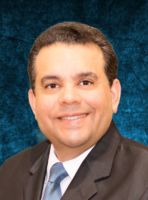Marketing, Manufacturing, Packaging & Labeling Advertising
Bendaña & Bendaña / Nicaragua
The key facts about marketing, manufacturing, packaging & labeling, advertising in Nicaragua. Prepared in association with Bendaña & Bendaña, a leading Nicaraguan law firm, this is an extract from The Pharma Legal Handbook: Nicaragua, available to purchase here for GBP 75.
1. What is the authorization process for the marketing of new drugs, biologics, medical devices, over-the-counter medications, and other medicinal products?
- Have a distributor authorized by the Ministry of Health that has a valid health license.
- Grant power to a legal representative and pharmacist to perform these procedures.
- Comply with all the requirements established in the Central American Technical Regulations.
- Successfully pass the analysis of each product when applicable.
2. What is the authorization process for the marketing of generic versions of these products?
- Have a distributor authorized by the Ministry of Health that has a valid health license.
- Grant power to a legal representative and pharmacist to perform these procedures.
- Comply with all the requirements established in the Central American Technical Regulations.
- Successfully pass the analysis of each product when applicable.
3. What are the typical fees for marketing approval?
Health Records of Medications:
Official expenses – US $ 485.10 – These costs are increased at the time of performing the analysis for each product, depending on the batch number to be imported.
Miscellaneous expenses – US $ 50.00
Fees and taxes – US $ 300.00
Biological products:
Official expenses – US $ 485.10 – These costs are increased at the time of performing the analysis for each product, depending on the batch number to be imported.
Miscellaneous expenses – US $ 50.00
Fees and taxes – US $ 300.00
Medical Devices:
Official Expenses – US $ 300.00
Variable expenses – US $ 100.00
Fees – US $ 500.00
4. What is the period of authorization and the renewal process?
For registration it is from 8 to 12 months.
For renewals it is approximately 8 months.
5. What are the requirements, if any, for post-approval pharmacovigilance?
We attach Normative Norm 063 “NORMA Y GUÍA PARA LA NOTIFICACIÓN
COMPULSORY ADVERSE REACTIONS ASSOCIATED TO MEDICAL SUPPLIES (Norma document and-Guide-Notification for FV)
6. Are foreign marketing authorizations recognized
In this case, a recognition procedure is carried out, only for the countries of Central America. The following requirements must be met:
- Power duly legalized that proves the legal representation
- Have a distributor authorized by the Ministry of Health that has a valid health license.
- Original Pharmaceutical Product Certificate, issued by the country of origin, duly legalized or apostilled, which includes the qualitative-quantitative formula, the shelf life, the approved storage conditions, the approved sale method of the product and compliance of the Good Manufacturing Practices of the manufacturing laboratory. When two or more laboratories are involved in the manufacturing process, their identification and compliance with Good Manufacturing Practices must be included as an annex.
- File a copy of the complete file together with an affidavit indicating that it is a true copy of the one filed in the country where the registration was made, in order to have the necessary information to carry out the health surveillance after the Recognition. The declaration must be duly legalized by apostille.
7. Are parallel imports of medicines or devices allowed?
It is not possible, since they must have the approval of the Ministry of Health taking out the health registration number.
8. What are the restrictions on marketing practices such as gifts, sponsorships, consultancy agreements, travel and entertainment, or other incentives for healthcare organizations and individual medical practitioners?
According to Law 292, Law on Drugs and Pharmacies, details the following:
Article 79. Active promotion within the country must be limited to legally obtainable medicines, with all the propaganda that contains affirmations related to medicines, which must be reliable, accurate, true, informative, balanced, updated, and susceptible to verification and of good presentation.
Article 81.– The text and illustrations of advertising or literature, intended for physicians and health professionals, must be entirely compatible with the technical sheet of the sanitary registry authorized by the corresponding instance of the Ministry of Health.
Article 82.– The packaging, labeling and prospectus of the specialties that do not require a medical prescription, shall be adjusted to the standards established by the Ministry of Health.
Article 83.– Advertising on medicines in the mass media, such as television, radio, press, public places, etc., is limited to over-the-counter or popular medicines.
Article 84.– Advertising of ethical medicines through any means of mass communication is totally prohibited.
Article 85.– The promotion to the general public of psychotropic and narcotic drugs is prohibited; only scientific information will be allowed to prescribers through literature through the medical visit.
Article 86.– Advertising of non-medicated cosmetics and personal hygiene products shall not be subject to the regulations of this Chapter.
Article 88.– The obligations of the Medical Promoter are:
- Promote only medical samples with health records;
- The information and promotion to be transmitted must be in accordance with the data contained in the sanitary registry and must be well-founded and objective and not misleading, in accordance with the technical specifications;
- The means of information and promotion used, will be basically scientific, will be directed and distributed exclusively to health professionals;
- Keep a record of promotion of medical samples.
9. How is the manufacturing of medicines and devices regulated and by which agencies?
If the product is manufactured in Nicaragua, a Sanitary License must be requested at the f governmental instances:
Ministry of Health
Directorate of Sanitary Regulation (medical devices)
10. Are local manufacturing requirements compatible with Good Manufacturing Practices (GMPs) as defined by the U.S. Food & Drug Administration and/or the European Medicines Agency?
They are not compatible, however, they are accepted to these institutions.
11. What is the inspection regime for manufacturing facilities?
See ANNEX TO RESOLUTION No. 339-2014 (COMIECO-LXVII). VERIFICATION GUIDE OF THE CENTRAL AMERICAN TECHNICAL REGULATION RTCA 11.03.42: 07 TECHNICAL REGULATION ON GOOD MANUFACTURING PRACTICES FOR THE PHARMACEUTICAL INDUSTRY. PHARMACEUTICAL PRODUCTS AND MEDICINAL PRODUCTS FOR HUMAN USE.
12. Are manufacturing facilities open for inspection by foreign inspectors or third-party inspectors as authorized by the FDA/EMA?
Factory facilities are available as long as the inspection is carried out by the Ministry of Health, which regulates this area. If inspectors authorized by the FDA / EMA are present, they must go to the Ministry of Health so they can take them to inspect the factories.
13. What are the requirements for storage, packaging, and handling of medicines and devices and their constituent components?
According to RTCA 11.01.04:10. PHARMACEUTICAL PRODUCTS. STUDIES OF STABILITY OF MEDICINES FOR HUMAN USE:
For products that do not require refrigeration or freezing:
- Storage conditions of 40°C ± 2°C with 75% ± 5% relative humidity for solid dosage forms.
- Storage conditions of 40°C ± 2°C for liquid and semi-solid pharmaceutical forms
For products that require refrigeration:
Storage conditions of 25°C ± 2°C with 60% + 5% relative humidity.
Store in a cool, dry place.
The labeling must not disappear under normal handling conditions, be easily legible to the naked eye and be written in Spanish. The labels may be of paper or any other material that may be attached to the containers or packaging or of permanent printing on them; as long as this printing process does not alter the integrity of the container or packaging on which said printing is made.
Storage areas must have sufficient capacity to allow orderly storage of various categories of materials and products: raw materials, packaging and packaging materials, intermediate products, bulk, finished, quarantined products, approved, rejected, returned or withdrawn.
Storage areas should be designed or adapted to ensure good storage conditions. They must be kept clean, orderly, at temperature and humidity according to the specifications of the materials and products.
In cases where special conditions of temperature and humidity are required, they must be established, controlled and monitored.
Primary containers and closures must be designed with a material that is not reactive, additive or absorbent and thus avoid alterations in the security, identity, potency or purity of the product at all times. The primary packaging requirements and closures must be supported by formulation studies, stability tests and supplier approval.
14. What information must be included in medicine and device labeling?
We attach the labeling regulation “RTCA 11.01.02: 04, Annex of Resolution No. 143-2005 (COMIECO-XXXII)”
15. What additional information may be included in labeling and packaging?
Go to the Labeling Regulation. We attach the labeling regulation “RTCA 11.01.02: 04, Annex of Resolution No. 143-2005 (COMIECO-XXXII)”
16. What items may not be included in labeling and packaging?
They must adhere to the Labeling Regulation. We attach the labeling regulation “RTCA 11.01.02: 04, Annex of Resolution No. 143-2005 (COMIECO-XXXII)”
17. What are the restrictions and requirements for the marketing and advertising of medicines and devices?
They must adhere and comply with the RTCA.
18. Where can medicines and devices be sold or delivered? Can medicines and devices be sold or delivered via post?
Medicines and medical devices must be delivered to a distributor authorized by the Ministry of Health that has a valid health license. These products must be sent through an agency of your choice, either air or land.
19. What are the restrictions and requirements for electronic marketing and advertising via email, by Internet, social media, and other channels?
They must adhere and comply with the RTCA.
20. May medicines and devices be advertised or sold directly to consumers?
Everything is done through the authorized distributor or authorized pharmacies.
21. How is compliance monitored?
The monitoring is done by the Ministry of Health, this institution frequently performs the inspections personally in the market so that the laboratories comply with established.
22. What are the potential penalties for noncompliance?
They discard all the product of the laboratory that is in the market with noncompliance. Fines and the complete closure of the commercialization of the product or the products manufactured by that laboratory.
























































